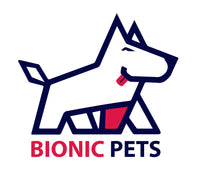An ACL tear is one of the most frequent injuries in dogs, and treatment options include rest, immobilization, and sometimes surgery. Dogs can heal from an ACL injury without surgery. For many dogs, orthopedic braces and supplements can be successful alternatives to surgical treatment.
A licensed veterinarian is the only person you should visit to find out if your dog needs surgery or if there are alternatives to surgical intervention. After an ACL tear has been diagnosed in your dog, you'll want to give serious thought to the many treatment options at your disposal.
Understanding Torn ACLs in Dogs
ACL injuries are quite common for athletes. The thin band of connective tissue in the center of the knee that we name the anterior cruciate ligament (ACL) in humans is really referred to as the cranial cruciate ligament (CCL) in dogs. Thus, we are actually talking about a CCL tear when we describe this knee injury in dogs.
Can a dog recover from a torn CCL without surgery? Yes, but it depends on the individual dog and the level of damage to the ligament. Surgery may be required if your dog is in extreme pain or unable to put weight on the affected leg. If surgery isn't an option, a veterinarian can recommend alternative treatments such as rest, nutrition, rehabilitation exercises, and supplements.
The bottom line is that a torn CCL in dogs can often be healed without surgery. The key is to follow the advice of your veterinarian and give your pup the necessary care to help them recover as quickly as possible. No matter what treatment option you choose, it's important to provide your dog with a safe and comfortable environment so they can heal properly.
Which Dogs Are Most Likely to Tear Their CCL?

Large breed dogs are more likely to experience ACL tears than any other type of dog. This is primarily due to their increased weight and size and the fact that they're more prone to traumatic injuries when playing and running.
These breeds are prone to CCL tears:
- Labrador
- Rottweiler
- Golden Retriever
- German Shepherd
- Newfoundland
Obese dogs are also prone to these tears due to the added pressure on their joints. Helping your dog maintain a healthy weight is essential for keeping them healthy and increasing their lifespan. Finally, senior dogs are also at risk of ACL tears because their joints and ligaments have aged over time.
Non-Invasive Treatments for Torn CCLs in Dogs
Non-surgical interventions for torn CCLs in dogs include rest, physical therapy, and supplements.
Rest is critical to allow the knee joint to heal itself. In addition, physical therapy can help strengthen the muscles around the knee and support joints that have been weakened by injury. Supplements such as glucosamine and chondroitin are sometimes recommended to further promote joint health and reduce pain associated with CCL injuries.
No matter your treatment option for your beloved four-legged friend, it's important to be patient, as healing takes time! To further assist your dog, you may consider orthotic and prosthetic devices from Bionic Pets. The company was started with the goal of helping animals with mobility differences lead full and happy lives.
Take a look at our products today to learn more about how we can help promote your pet's recovery success—your furry pal will thank you later!
Learn the Best Methods to Measure Your Dog for a Knee Brace
DIY Guide to How to Make a Dog Knee Brace
A Comprehensive Guide to Support Arthritic Dogs
How to Help a Dog With a Strained Muscle
How Much does a Prosthetic Leg for a Dog Cost?
How Many Hours a Day Should My Pet Wear a Dog Knee Brace?
